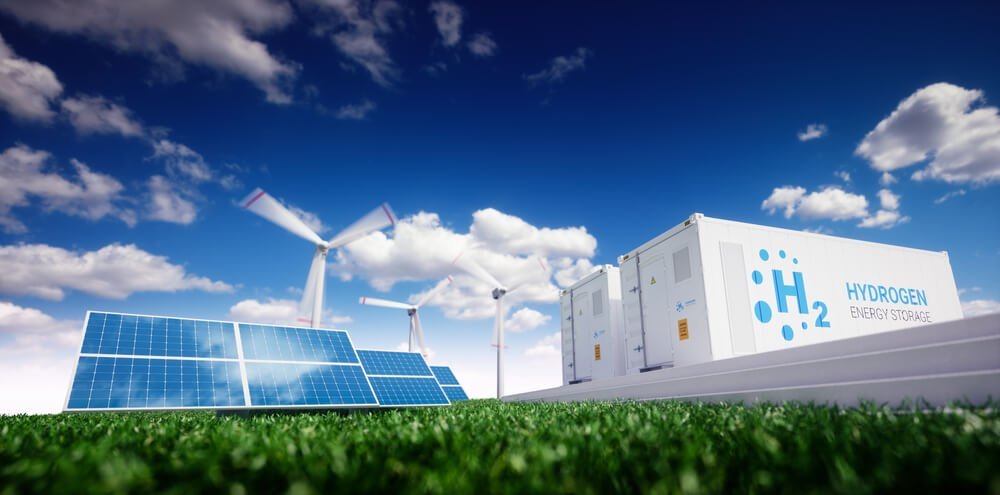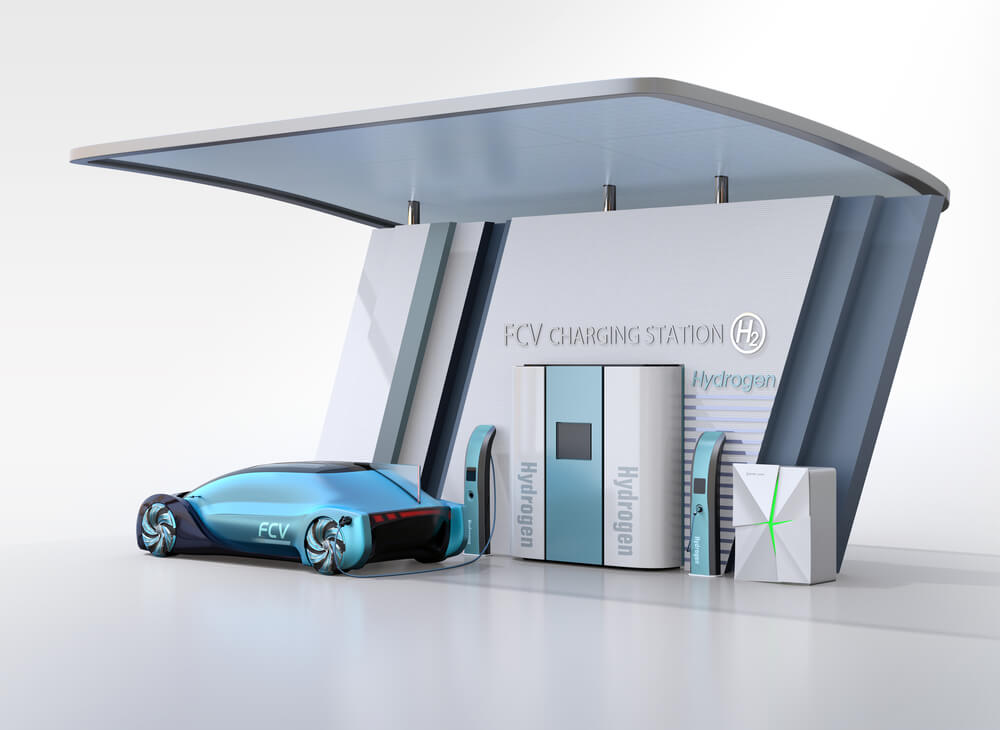We have all studied the periodic table and noticed the first element listed: hydrogen.
It is the simplest element known to exist as well as the most abundant throughout the universe.
One thing that you might not have learned, though, is that it can also serve as a renewable resource.
Hydrogen is the next big thing in the energy future.
What is hydrogen?
Hydrogen is an atom that consists of one proton and one electron. Simple, right? It is the source of all energy we receive from the sun, which is basically just a big ball of hydrogen and helium gases.
As we all know, most of the energy we use comes from the sun.
It makes plants grow as well as provides us with light and heat.
Not only that, but it also causes the rain to fall and the wind to blow, creating the weather patterns that fuel many of our renewable energy resources!
One thing to note about hydrogen is that it does not naturally exist on Earth in its gaseous form. Rather it exists in compound form.
These compound forms include:
- Water – when hydrogen is combined with oxygen.
- Organic Compounds – when combined with carbon.
- Methane
- Coal
- Petroleum
Hydrogen is found in all growing things in the form of biomass. It can come from either nonrenewable resources or renewable resources.
Hydrogen is one of the most promising energy carriers for the future.
It does not cause a lot of pollution, and it is highly efficient. It can be used for:
- Transportation
- Heating
- Power generation, especially in places where electricity is difficult to use.
In the future, hydrogen will join electricity in being an important energy carrier because it is virtually non-polluting and can be made safely from renewable energy sources.
Not only that, it can be used to do the following:
- Fuel zero-emissions vehicles
- Heat homes
- Produce electricity
- Fuel aircrafts
Hydrogen is already being used to do these things on a small scale.
Hydrogen is not used to power things such as cars or create electricity on a large scale yet because of the cost.
Innovative practices and research are needed to produce more cost-effective ways to use hydrogen as an energy carrier.
How is hydrogen fuel renewable?
The only by-product produced by the burning of hydrogen is water.
his is why hydrogen is a popular zero-carbon energy resource just waiting to be used.
Many processes have been used to produce hydrogen, but they are not even remotely zero-carbon.
There is an upcoming solution that is becoming more popular as new technologies and research are introduced, and that is the use of green hydrogen.
Green hydrogen is also known as renewable hydrogen fuel.
It is produced through a process called electrolysis. Machines split water into hydrogen and oxygen through the electrolysis process.
There are no other by-products produced in this process, which is a plus.
How green hydrogen compares with other forms of clean energy
The current renewable technologies, including solar and wind energy, can decarbonize the energy sector by about eighty-five percent.
Still, there are parts of the economy that are harder to electrify. These parts of the economy include shipping and manufacturing.
These industries are harder to electrify because they require fuel that is high in energy density or heat at high temperatures.
Green hydrogen is the only renewable energy source that has the potential to tackle these sectors. According to the Energy Transitions Commission, “green hydrogen is one of four technologies necessary for meeting the Paris Agreement goal of abating more than 10 gigatons of carbon dioxide a year from the most challenging industrial sectors, among them mining, construction, and chemicals.”
Advantages of Green Hydrogen
Not only is the supply of hydrogen virtually limitless, but it can also be transported anywhere.
Unlike batteries, which cannot store large quantities of energy, hydrogen can be produced from excess renewable energy and stored in large amounts for extended amounts of time.
Hydrogen is better than fossil fuels not only because of its environmental benefits but also because it contains three times as much energy as fossil fuels.
Hydrogen fuel cells do not need to be recharged like batteries; instead, they can thrive wherever there is hydrogen fuel.
According to a scenario in the Hydrogen Roadmap Europe: A sustainable pathway for the European Energy Transition, “by 2050 it could cover up to 24% of final energy demand and create 5.4 million jobs, in addition to contributing to the total reduction of 560 million metric tons of CO2.”
Why do we need renewable hydrogen?
If we genuinely want to meet the goals of the Paris Climate Agreement, green energy is essential.
The last fifteen percent of the economy that includes the shipping and manufacturing sectors, must be addressed through the use of hydrogen energy.
The specific sectors include:
- Aviation
- Shipping
- Long-distance trucking
- Concrete Manufacturing
- Steel manufacturing
These sectors are included in the top three sources of climate-warming emission.
To put it simply, the ability to produce large amounts of renewable hydrogen will play a crucial role in providing a green alternative to fossil fuels as countries are attempting to put in the effort to lower their emissions to promote a more sustainable future.
Conclusion
Green energy has been identified as a leading energy source that could finalize our efforts in trying to obtain a future with net-zero carbon emissions.
There are plenty of obstacles that need to be addressed and are being addressed even as I write this article to implement more use of hydrogen as an energy source.
Green hydrogen has the potential to take the place of overused hydrocarbons.
Anyone who believes in climate change and the detrimental effects of the overuse of fossil fuels on the environment must look to the future of new technologies.
The production of green hydrogen will be vital in the fight against the catastrophic fate of fossil fuels.
Green hydrogen is a talking point of multiple government agencies worldwide, and we must hold them to their word of implementing the new technology to promote a carbon-free future.





